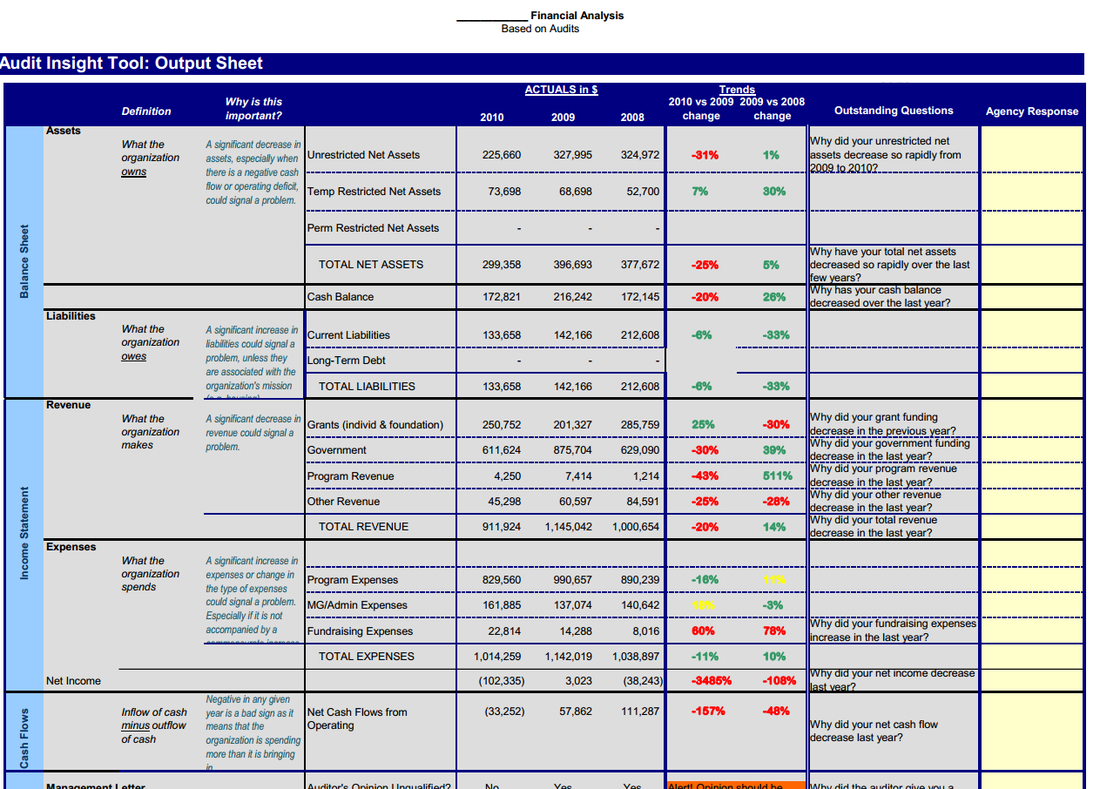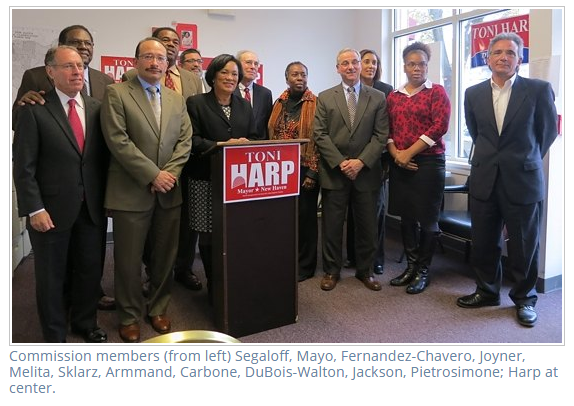Welcome
I hope what I post here proves helpful to your getting to know me better. I'm putting this up on the fly -- so you'll see plenty of messiness on occasion: empty boxes and spaces, new unfinished postings that very likely probably won't look pretty until later. I've made my peace with the web -- in fact its capacity for constant iteration is its strength.
I guess that's the long way of telling you that you should read everything more than once!
I guess that's the long way of telling you that you should read everything more than once!
How I've Helped Groups Like IICONN Advance Its CauseIf I Had to Summarize My Strategic Thinking into One Idea
I always remind myself that there's a big difference between shouting out "I demand my civil rights!" and saying, "I have a dream..." The latter concedes nothing to the former in terms of its cry for justice, yet always wins out over the former because it makes a direct appeal to our universal desire for a better world and assures us that there are no losers. 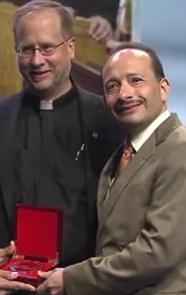
I Wish We'd Never Been in a Position to Win a National Civil Rights Award
Before I get to that, the reason I'm posting this is because the video encapsulates nicely (albeit in dramatic and compressed fashion, of course) the overall situation, the very real risks that we took, and the hard work it took us to get to the beginning of a victory. In my case, I had to work hard at building relationships of trust, maintaining my own optimism and that of others, and taking everything I'd learned about strategy to help us craft an honest story that rightly had the majority of people empathize with us while at the same time prevent the powers-that-be from tarring our effort with unrelated, unpopular issues or by subtle (or not) appeals to prejudice and character assassination. And we had to do this for five years! Whew! Back to the title: when I reflect that Fr. James Manship and I won this award because we had to stop police from harassing and beating people, I'm sure you won't think I'm being falsely modest in wishing that this had never happened. 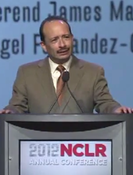
But if you watch this, I hope you'll see why I'm proud of what we accomplished at St. Rose, and the deep sincerity of my belief that this shouldn't happen to anyone -- and that we're even doing this work on behalf of those who oppose us.
Some quick time stamps so you don't have to watch the entire 20-minute video if you're pressed for time:
My Life Experience with Refugees
I want to be very clear in one important aspect about refugees: no, I don't know any more than the general public does about our laws and public policies regarding refugees. So I won't bring any added value there. But I did grow up with them. And over the years, I've recognized how formative those experiences were. I grew up in a neighborhood in Hollywood, California, that is now known as Little Armenia. But when I was growing up there in the mid-1960s through the 1970s, it was going through a huge demographic transition. There were immigrants, even then mostly from Latin America (although my neighborhood was truly unusual at the time because my family seemed to the only Mexicans). But now I realize that, whether they were officially classified as refugees or not, a lot of my friends and neighbors were here because they were fleeing persecution of one kind or another. Here's the list of the background of some of my childhood friends and neighbors, so you can judge for yourself:
In retrospect, I can understand why some of my friends' parents and neighbors were reticent, sometimes to the point of rudeness, to talk to me about the old country. Now I know why the mothers of the Bulgarian and Iranian households would look to me, young as I was, as if a black cloud would forever hang over them. Mrs. Dabevsky once said to me essentially that "Bulgaria is dead." I was horrified, because I knew things were difficult in Mexico, but how could she say that her home country was dead? She had to love Bulgaria as much as I loved Mexico, right? On the positive side, I definitely learned one thing: not to fear the stranger, mostly because I never knew they were strangers. Sure, they were different in many ways, with exotically different food that I loved to eat, but we all seemed to have in common strong ties to family and traditions. We definitely all had a sense of discomfort with American informality. On the other hand, among us kids, we never thought that we weren't Americans. What about the more 'typical' immigrants? Their background was pretty diverse, as well:
With regard to the two Black Latino famlies, I saw them through Latin American eyes. I never thought of them as black in the way we do as Americans until much later. I think it's funny that it didn't hit me until I was looking at photographs of them as an adult. For that matter, about ten years ago my sister and I realized that we were far closer to our African ancestors than the typical Mexican when we recognized that our beloved great uncle Pepe was black. I had a great childhood! |
How I've Helped Groups Like IICONN Grow and Be EffectiveEncouraging Financial Viability
If you click on the image below you'll see a PDF of an early version of a financial viability tool that I used. This version was barely changed from the original designed by REDF (now a part of Social Impact Exchange, I believe). I don't claim ownership of the idea, but I did try to simplify these tools so that the average nonprofit manager would be willing to use the tool and learn the importance of monitoring some basic indicators, like current ratio, debt to unrestricted assets, etc. 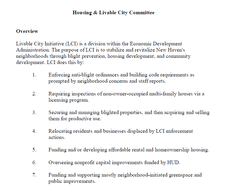
A 2-fer: See How I Analyze Systems Comprehensively and Know My Way Around Affordable Housing and Neighborhood Development
I had the privilege of chairing the housing office transition committee for then Mayor-Elect Toni Harp in 2012. For a variety of reasons, mostly budgetary, none of the committee chairs could do as thorough a job as we wanted -- certainly no one will claim we produced reports rivaling anything McKinsey does. Even so, in my case I'm pleased to say that though many years have passed since I'd been a practitioner in housing or community development, I could lean on a combination of my 'old' experience, my emphasis on understanding the big picture, plus my accumulated knowledge of effective management for all kinds of organizations to come up with a good first start of recommendations. Though formatting and the order of some of my report was changed to match that of the entire transition report, any weakness you perceive as you read the report is mine: 95% of the report are my ideas and my words. Click on the image to read it. Of course, given the purpose of this web page, I'm not supposed to be modest, so I'll insert my extemporaneous statement as reported by the New Haven Register in their 11/12/13 article: “What I hope is that the Harp administration will be a beacon of hope for everybody who lives in the city regardless of their economic status, regardless of their documented status, regardless of any kind of way we like to split ourselves up into all kinds of little categories,” Fernandez-Chavero said. He said he wants New Haven to be a place where people move because they know they can thrive here. And here's what the Yale Daily News reported on that same date -- the context being that the team was made up of Elm City natives and Yalies, like Mayor Harp, who stayed: “I’m one of the people who didn't grow up here; I came here as one of those obnoxious Yalies” said Angel Fernandez-Chavero ’85, a Fair Haven activist and political and management consultant, commenting on the high concentration of Elm City natives in the group. |


